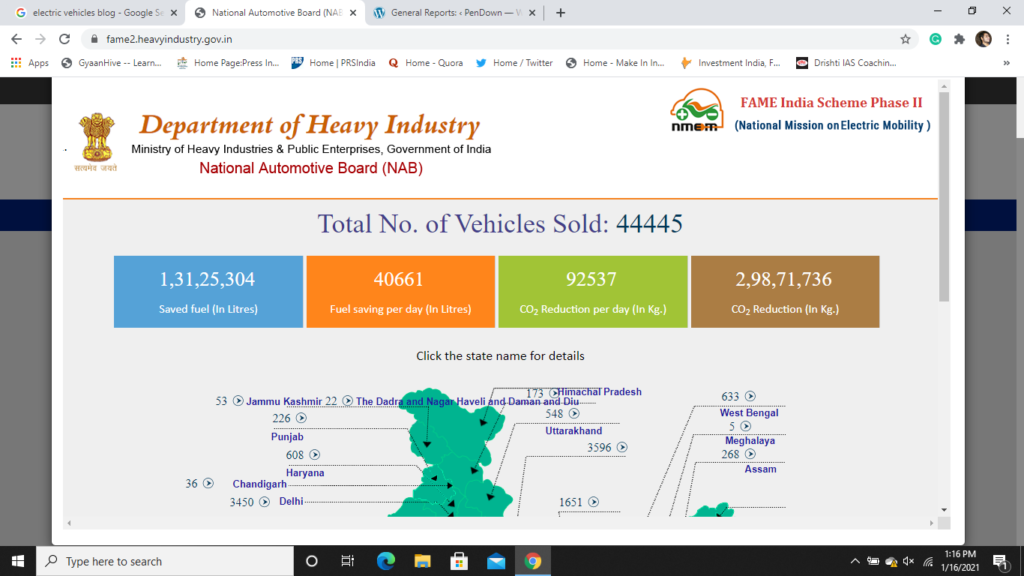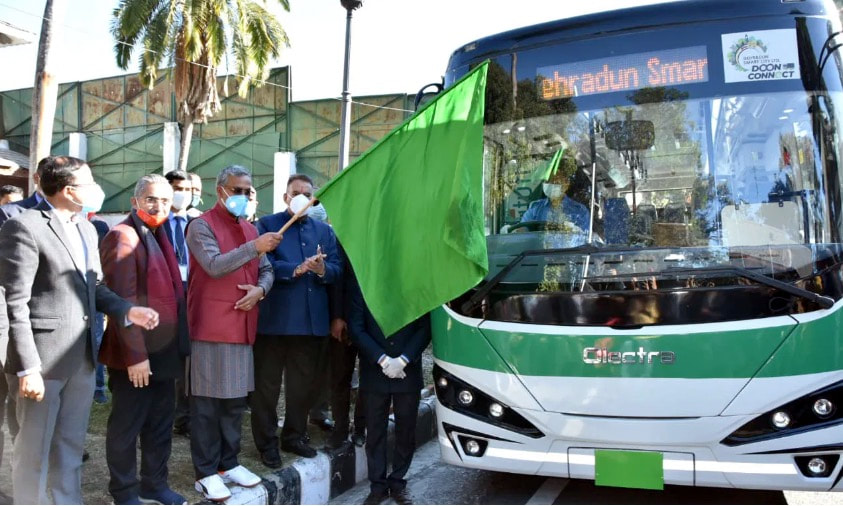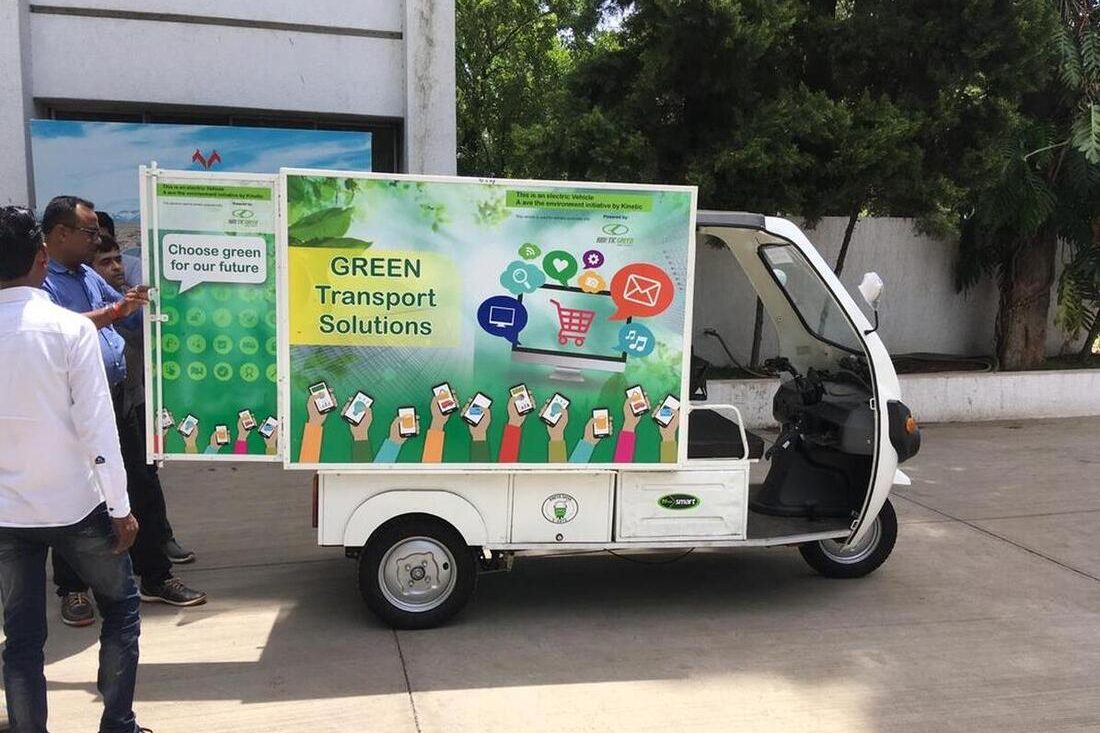Electric Mobility
The world has entered into a new decade. Moving in a new decade and getting the menace of climate change, pollution and pressure on natural resources in the inheritance will be a challenge for the entire population. As the world is in Pandemic and struggling with SARS- COV2 and its mutation further deterioration in the health and well being of people will pose a great challenge. This will create a catastrophic impact not only on health but also have a spillover effect on other sectors too.
One of the enemies is the vehicular pollution. It produces tonnes of harmful gases depleting natural resources and bringing change in climatic patterns. Reduction in greenhouses gases and pollution is a mammoth task. Renewable energy, Alternate source of fuels, zero vehicular emission are the future.

India, on the path of World major economies movies towards Electric mobility. Tesla, one of the biggest EV manufacturer has entered the Indian market. TESLA formally get registered in with ROC in Bengaluru. It targets to run its 5 unit in India including R&D and Production. It will get a firm competition from existing business houses including TATA, Mahindra, etc.
Electric vehicles are already plying on Indian roads. Three-wheeler and E- Rikshaw have a good share. Bajaj, Ather Energy and startups like PURE EV, BATT-RE are targetting two-wheeler segment.
Government Push
Indian authorities realised the importance of and need for electric vehicles. To promote and push government came with policy and schemes. Faster Adoption and Manufacturing of (Hybrid&) electric vehicles (FAME) under Ministry of Heavy industry was launched in 2013. FAME 1 came into force in 2015 to encourage electric vehicles. It provides benefits to limited manufactures in setting and running smoothly.
The government in 2019 Budget specifically allocated 10,000 for FAME 2. Fame 2 came into force in 2019 covering all the segment of EV. The component of the FAME 2 policy scheme includes support in setting new firm, creating a plug and play options, creating the infrastructure for ease in mobility and demand push. Government through this scheme gives incentives to manufacturers as well as consumers through financial subsidies.
State Governments through their Electric vehicles’ policies are giving impetus to mobility. Delhi has Electric policy which targets to provide ease in setting up, charging infrastructure, etc. Electric buses were already plying on roads of different cities like Delhi, Manali, Mumbai and many more. Most of the state governments have targets to include more in the ferry in near future.


Benefits to the table
One should ask why should we move to electric vehicles? The answer is not just pollution. Yes, it will have a big role in combating pollution and reduction in GHGs from vehicular emission. The growth of population will demand fossil fuels for their essential energy needs. Electric vehicles will reduce the pressure on limited fossil fuel reserves.
Netizens demand most of the things to be delivered to their doorstep. These companies like courier companies, food delivery platform, cab services incur a big proportion as their fuel cost. Electric vehicles will reduce their cost of operations and release a big chunk of working capital. This will help in expanding their business, paying more and formalising platform workers. It creates a virtuous cycle of demand.
India imports a major portion of its fossil demand. It leads to a high import bill. Unfavourable BOP will add pressure on the Indian currency and deteriorate rupees vis-a-vis US dollar. Reduction in fuel consumption leads to the release of money which will boost demand. A stable BOP coupled with demand will attract business and investment.
Electric vehicles demand all together new platform. It will create job opportunity for millions. It opens up demand for skilled workforce in developing new technology. Infrastructure development for EVs will require a big supply of manpower. It will have a very positive impact on job creation overall.
Bottlenecks in the Path
The simple question before Electric Vehicles, Is India ready for it? Is it sustainable in a developing country like India? Does it have a market?
Electricity is the fuel for the EVs. Even till today, electricity is not in all pockets of the country. More than half the population of the country lives in villages where electricity supply is not 24 hours.
Fuel recharge time is one of the biggest hurdles. A vehicle that runs on internal combustion will need just 15-20 min to recharge its fuel tank. While an EV will need an hour or so to get it charged. It will create a question mark.
Infrastructure will be the biggest key in the success of EVs. With a lack of charging station, battery replacement, skilled manpower, better mobility is not possible.
Sustainability in long-distance travel is not possible today. First is the non-availability of the charging stations. Second, the speed of the EVs does not match with combustion vehicles. Third, the availability of manpower for repair works.
India is a developing country with a major of its population in the middle-income category. Price plays a very decisive role in the selection of any product in the middle-income families. EVs are priced very high in comparison to the same diesel or petrol vehicle. For example, TATA NEXON EV is nearly 4 lakh higher than its fossil fuel variant.
Technology will Drive
India and the world are optimistic about reduction in GHGs. Technology will play a very promising role in Electric mobility. We know the generation of electricity needs other forms of fossil fuels. It is like holding the same ear with another hand. Generation of electricity from renewable sources and making them sustainable for the EVs will pave the way. The best alternative for electricity generation that will not harm the environment.
Infrastructure in the form of Charging station needs to develop at the target level. It should also meet the demand for reliable, fast and cost-friendly.
People should be made aware of the schemes of various governments regarding price subsidy. A mass awareness campaign about the benefits of the EV. People should be made aware of the initial cost is high but subsequently, they will save in terms of fuel cost.
Batteries and their component will pollute the environment. A dedicated disposal policy for the batteries and EV component should be made by the government. In this document, the duties and responsibility of all the stakeholder should be made crystal clear with punishment norms.
The need of the hour is to save our planet from ourselves. It is the responsibility of every citizen to reduce its carbon footprint and move towards sustainable development. Electric mobility is one of the ways but it has a long journey to cover until people become confident in reliability and sustainability.


Divyanshu Singh
(views expressed are personal)
Nice info…. Amazing, write up 👍👍👍👍
Thank You
Amazing..👍👍
Thank You
Amazing 👍👍 keep it up
👍👍👍👍
Good writeup, covering all angles on the topic .
Good writeup.. 👍👍